-
Define challenges for the IMPETUS accelerator call
-
Nominate projects, and a jury member for the European Union Prize for Citizen Science
-
Be ambassadors for the project
The IMPETUS Citizen Panel gathers citizen science practitioners and it is essential to the way IMPETUS wants to design, plan and execute its work plan. The panel will be growing over time, adding 10 members each year, until 2024. Its main roles are:
Meet the members of our citizen panel here!
Maria Leão
She/her
Instituto Gulbenkian de Ciência, ITQB NOVA, Oeiras Valley
Oeiras, Portugal
Your involvement in citizen science
Coordinator of the Citizen Science Programme “Ciência + Cidadã”, in a close partnership between Instituto Gulbenkian de Ciência, ITQB NOVA and Oeiras Municipality. We aim to implement a Citizen Science strategy at an institutional level in a multidisciplinary approach with the support of partners from different sectors of society. We also collaborate with the Portuguese Network for Citizen Science.
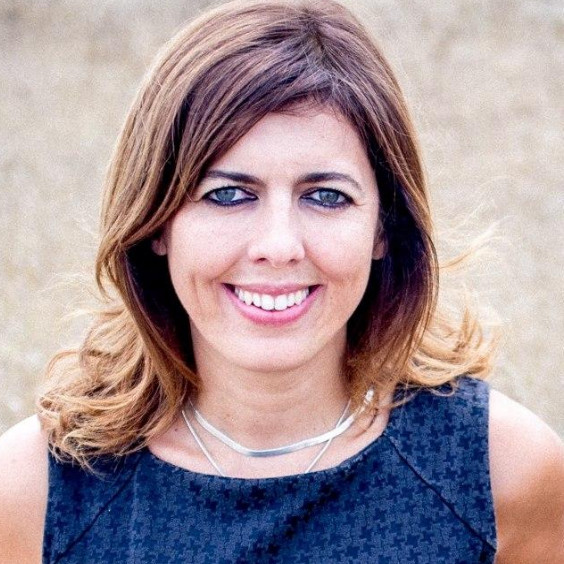
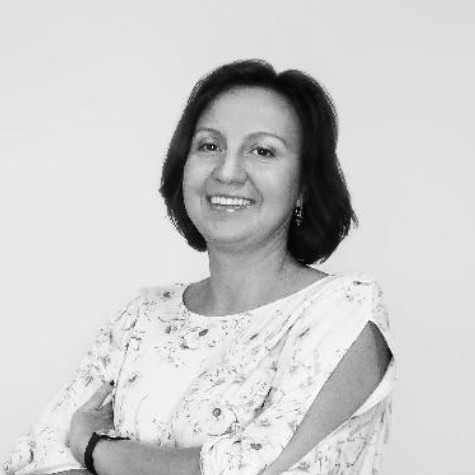
Katarzyna Pydzińska Azevedo
She/her
Porto, Portugal
Your involvement in citizen science
I am actively involved in the activities of the Portuguese Network for Citizen Science and in organisation of some local events for CS promotion. My current doctoral research at the University of Porto (Department of Sociology) is also related to CS, with my PhD thesis focused on the potential of citizen science for better local policy making and SDGs monitoring, especially in urban context.
Over the years trough my professional work at INOVA+ I have been involved in numerous European projects, often in the related areas (citizen engagement, co-creation, open innovation & open science, science communication and promotion) and my interest in citizen science grew stronger. On the other hand, long-term participation in the CIVITAS initiative and similar urban-focused projects increased dedication to the theme of sustainable and liveable cities, hence leading to my current priority area of CS and active citizenship.
Zuzana Stožická
She/her
Slovak Centre of Scientific and Technical Information, Bratislava, Slovakia
Your involvement in citizen science
I promote citizen science in Slovakia. With my colleagues from Department of open science support in SCSTI we created first Slovak introductory course on citizen science and the list of CS (or participatory research) projects in Slovakia. We translate educational materials, write articles about CS in Slovak, lecture and invite people from the participatory projects to have webinars and talks to public. Our aim is to establish citizen science platform in Slovakia.
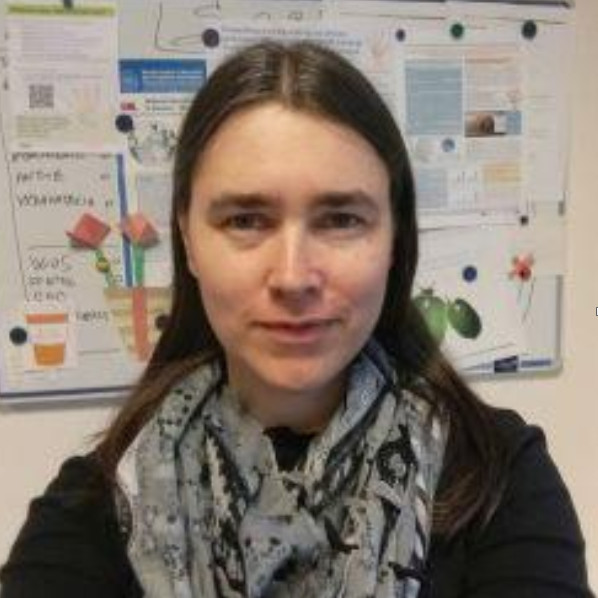
Monika Maciuliene
She/her
Vilnius, Lithuania
Your involvement in citizen science
Head of Lithuanian Citizen Science Association (www.pilieciumokslas.lt). I’m also a researcher at Vilnius Tech and together with our team, we are involved in several projects focused on Citizen Science (e.g. INCENTIVE). In both of these roles, my job is to raise awareness about Citizen Science in Lithuania through the preparation of training materials, support resources and organization of events.
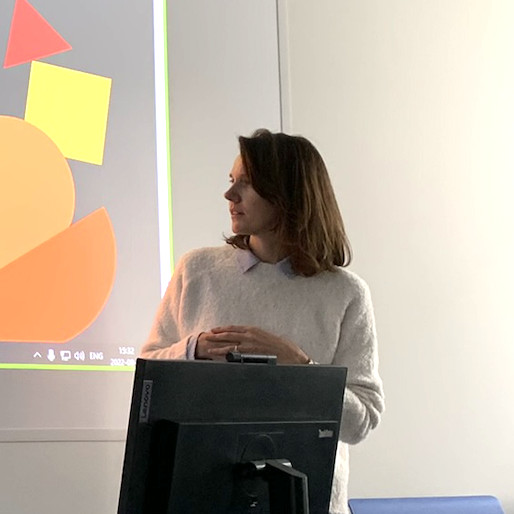
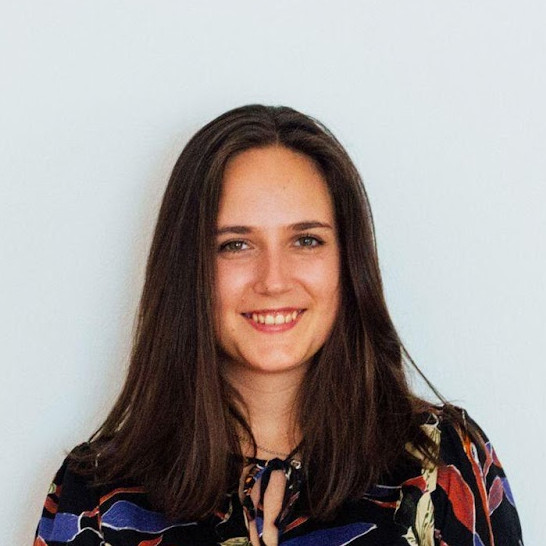
Anna Verones
She/her
Berlin
Your involvement in citizen science
I heard about citizen science for the first time in the context of marine protection, as an emerging approach to raise awareness around climate topics and inspire collective actions.
In 2021, I led the development of the citizen science project Open Soil Atlas, an open source co-learning center, where participants are trained on how to test soil and make results available to the scientific community in the form of a high-resolution soil quality map. Based on the correlation between healthy soil and healthy communities, we wanted to increase soil literacy and promote soil conservation practices at the local scale.
I’m interested in citizen science as a tool for promoting and legitimating civic engagement and public participation in the definition of common strategies to face the crisis of our times and collectively design solutions. I work at the Federal Network for Civic Engagement in Germany (in German, Bundesnetzwerk Bürgerschaftliches Engagement) and I believe in collective action as the way to pursue fair and sustainable socio-ecological transformations.
Dr. Rhoda Schuling
Groningen, the Netherlands
Hanze University of Applied Sciences / Centre of Expertise Healthy Ageing
Your involvement in citizen science
Our Applied Sciences University is practice-oriented in both research and education. Therefore, it is ideally positioned in local and regional settings to work with Citizen Science: this is where our networks are. In recent years, it has become clear that to bring about necessary transitions in (thinking about) health care in particular, much more bottom-up innovation, i.e. innovation co-created with citizens, is needed.
To facilitate our teachers, researchers, students and external partners in the region, a small task force has been formed within the University. As postdoc researcher Citizen Science, I head this taskforce. I am responsible for research and educational strategy in Citizen Science, and number of individual Citizen Science research projects. I’m also involved in CS networks maintained with other Universities and health related RPOs, as well as the Citizen Science in Health workgroup from the European Citizen Science Association.
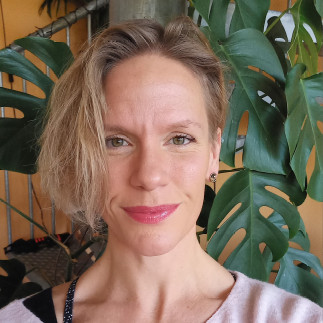
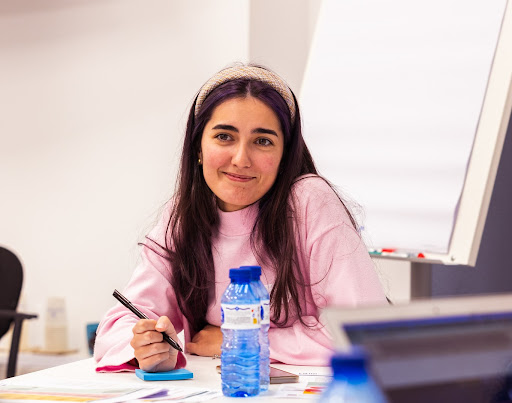
Alicia Moreno
She/her
Fundación Ibercivis, Spain
Your involvement in citizen science
It all started when I became a student assistant at ECSA, where I supported the EU-Citizen.Science project. This experience exposed me to a diverse range of citizen science projects and resources, sparking my interest in the field. After my time at ECSA, I joined Ibercivis, where I now focus on designing citizen science projects at both national and European levels.
Additionally, as part of the Ibercivis team, I coordinate the Spanish pilot activities that take place under the frame of the AGORA project. These activities include, among others, the design of participatory workshops for the co-creation of innovative solutions to improve climate adaptation.
Irene Lapuente
She/her
La Mandarina de Newton S.L., Barcelona, Spain
Co-creation and science communication
Your involvement in citizen science
Currently, I am participating in a Citizen Science initiative called Obstetric coevolution (OBCOE) within the IMPETUS program. Obstetric coevolution works on the research question of how obstetric practices affect women’s mental health, including postpartum depression. Part of the research consists of organizing co-creation workshops in Barcelona, with women and other stakeholders. I have been facilitating co-creation workshops since 2009.
During the past 14 years, I have been involved in co-creation processes related to health, well-being, food, environmental issues, education, economy and culture.
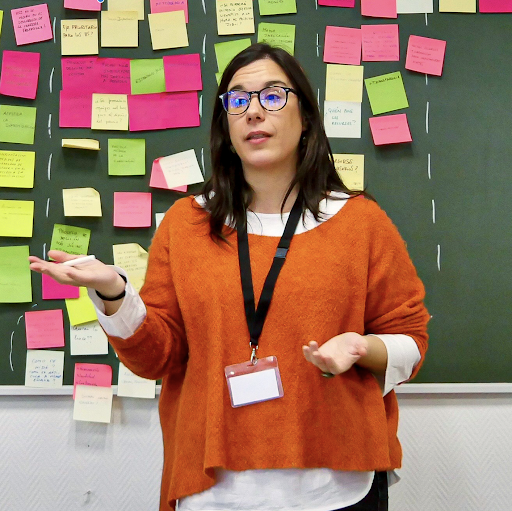
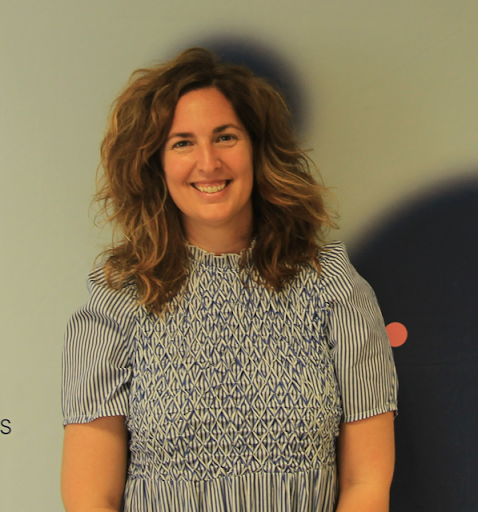
Patricia Martínez Galisteo
She/her
Open Science Unit. Foundation for the Promotion of Health and Biomedical Research in the Valencian Region (FISABIO), Valencia, Spain.
Your involvement in citizen science
I have been recently funded by the Citizen Science Accelerator to initiate the MENINA project. This is a CSI to generate new knowledge regarding mental health status and well-being during pregnancy. We count on our pregnant women to act as citizen scientists.
In addition, I am coordinating the citizen science strategy to involve the public in biomedical and health research and innovation processes.
Agostino Letardi
He/Him
Italian National Agency for New Technologies, Energy and Sustainable Economic Development, Italy
Your involvement in citizen science
I am a member of CSI (Citizen Science Italia). I have been involved in Citizen Science initiatives (mainly through Bioblitz) since 2013, participating in activities in various Italian geographical areas. As coordinator, I am the promoter of various citizen science initiatives with virtual platforms in the zoological field.
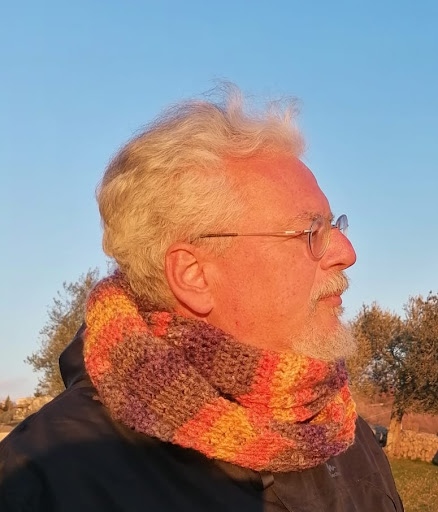
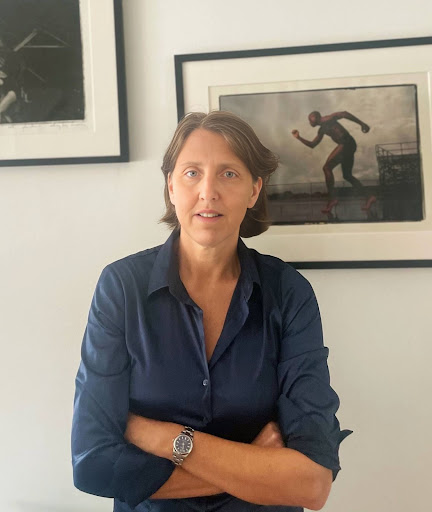
Ana Macedo
She/her
Faculdade de Medicina e Ciências Biomédicas,
Algarve University, Portugal
Algarve Biomedical Center, Portugal
WGSC, Diversity, Equity & Inclusion Consulting
Your involvement in citizen science
I participate in Citizen Science initiatives through the IMPETUS program with the Equity in Health for LGBTQIA People project, which I coordinate.
As a teacher, I facilitate various Citizen Science initiatives with students and the community in the area of health equity for LGBTQIA people.
Sofia Morazzo DVM
she/her
International Clinical Research Center, St.Anne’s University Hospital, Brno, Czech Republic
Faculty of Medicine, Masaryk University, Brno Czech Republic
Your involvement in citizen science
My involvement with citizen science has been mostly focused on motivating and inspiring young students at the high school level or initial years of university, to understand how we investigate, in my case, metastatic cancer. I believe that reaching out to young citizens could inspire them to pursue science but most of all equip them to better understand how research is done and enable them to be more critical about it.
My new involvement with citizen science is through the Echos Project (https://cancermissionhubs.eu/), a European Union project that aims to establish National Cancer Mission Hubs across Europe, to operate at local, regional and national levels, to bridge the gap between all the different stakeholders and facilitate the EU Cancer Mission.
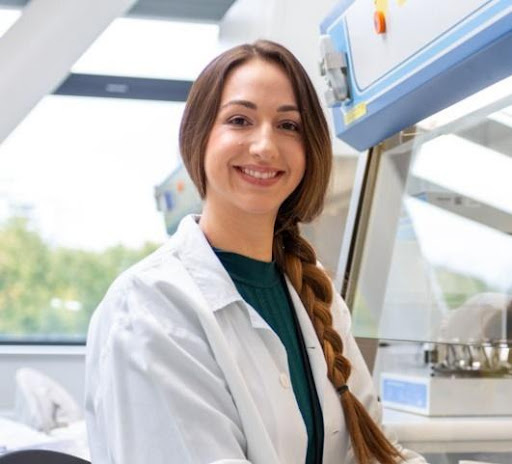

Luciana Marques
She/her
Barcelona, Spain
Your involvement in citizen science
I am a scientific communicator, and I have actively participated in several projects focused on basic research. I’m constantly working on strategies to achieve the wider public interest and engagement in science.


